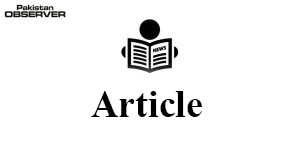Science, Islam and art of questioning
WHAT if humans, after birth, were given a choice to set their beliefs according to their own volition? What if they chose to take their own paths? There would not be a difference in pursuit of knowledge.
But, it is alarming for us, as Muslims; when such questions arise, we get a jolt. Despite all of this, our claim is, we are moving along with science. However, if truth be told, we disregard the concept of questioning (which itself is the fundamental pillar of science).
Such is the case here, where religion and science are always in a never-ending conflict, that the world is based on the factual terms or more of an interpretative way of understanding life.
Similar to this, there have been conflicts going on around Muslims that science is corrupting the knowledge which is mentioned in the Quran.
Many scholars believe that inventions and other discoveries of science threaten the notions taught by Islam. Muslims believe in the hadith and Quranic teachings which were revealed 1400 years ago.
Now, the question arises, do they really follow these notions in a complete sense? Or are they just following from surface and not pondering over it in a deeper connotation.
Looking at both of the factions, Islam’s problem arises with not questioning itself but the way a question is asked that can arise controversial inquiries about the nature of things and the creator himself.
Most of the scientists prefer the factual approaches whereas Islamic knowledge is based not on facts alone, but it also relies heavily on revelation and inspiration. This is where the scientific approach begs to differ.
The Atheistic approach in Science, according to David Johnson, says that even the atheist scientists consider a spiritual dimension in many of their scientific researches. So, the question arises, are Muslims ready to consider nihilistic approaches without feeling offended?
If we consider looking at scientific knowledge, which in fact is alien to many religious scholars, Muslims had a great hand in contributing to science for many centuries in the past.
May it be the field of medicine, physics, astrology, mathematics or biology, Muslims have made contributions to science which, till this day, are appreciated by the scientists all over the world. Dr. Jamil Ragep, a professor at University of Oklahoma, says that the knowledge, Islamic world had, in the 1600s, no book or scientist in Europe was able to hold a candle against it.
Many Scientists and even Muslims fail to understand that the Quran is not a book of formulas but a book of guidance.
If everything was readily available for humans, then how would they be able to do critical thinking about their own existence.
This is the point where we understand that how important is questioning in Islam. On many occasions in the Quran, it has been emphasized, on the Muslims, to search for the meaning of life and to put some effort in understanding; to deem worldly knowledge as equally important.
The Quran asks rhetorically in Surah 39:9 “Can they, who know, and they, who do not know, be deemed equal?”
This, thus proves that the creator wants Muslims to have curiosity that leads towards the pursuit of knowledge.
Looking at the questioning stance, of both Islam and Science, there are quite a lot of similarities among them; that they do not accept anything readily and there is an emphasis on fact checking before adopting it.
Despite all the conspiracies against inquiring the Islamic notions, if we were to analyse Islam on a deeper level, we will observe that (astonishingly), there is a lot of room for questioning in it.
Islam and science have always been on the same page except for the time, when it comes to the point where one has to answer the question “Who?”, Muslims are of the view that whatever is formed or created, it is by the will of Allah and him alone.
If one genuinely believes that Islam is the absolute truth, then one must have a strong faith that any kind of opposition cannot lessen the stature of the Islamic faith that lies within their hearts. Only then, one can firmly stand their ground and without hesitation, accept the scientific knowledge that many Muslims have alienated from.










